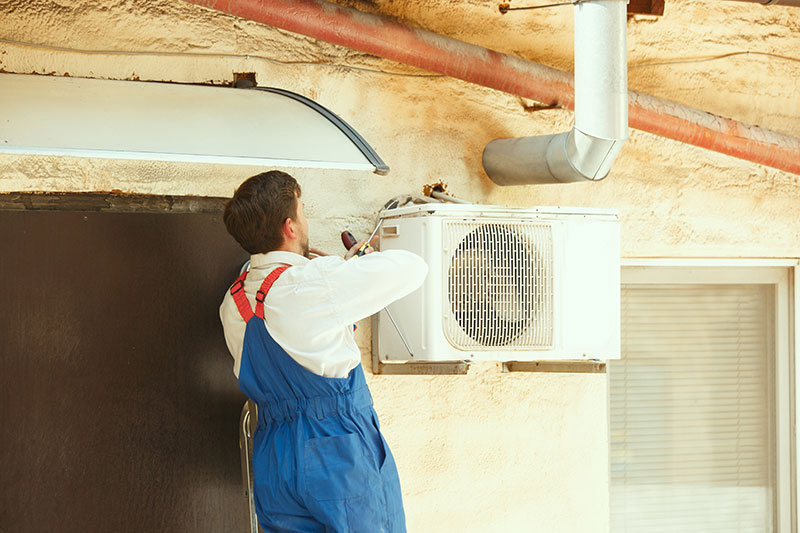With spring officially here, it is time to start thinking about how to prepare your home’s HVAC system for the warmer weather ahead. By following these simple tips, you can help ensure HVAC maintenance for spring to keep you comfortable all season long. So what are you waiting for? Read on for information on how to get your HVAC ready for spring!
Air Filter
Air filters play an essential role in your HVAC system because they help clean the air. A clogged air filter puts extra strain on your system and reduces its life. Changing your air filters helps improve the efficiency of your system and maintain healthy indoor air quality.
Outdoor Unit
Cleaning the outdoor unit is essential because it helps improve the system’s performance during the spring months. Debris and dirt can quickly accumulate around the outdoor unit, so it is vital to clean it regularly. To clean the outdoor unit, you can use a water hose spray to remove loose debris and then use a coil cleaner or a solution of soap and water to clean the coils.
Vents and Registers
Cleaning the vents and registers is necessary to ensure proper cooling and airflow throughout your home. Debris can accumulate in these areas over time, which can impact the performance of your HVAC system. By cleaning them regularly, you can help to keep your system running efficiently.
There are a few different ways to clean vents and registers. One is to vacuum them to remove any dust or pet hair that may have accumulated over time. Another option is to wash them with warm water and mild soap.
If you have a zoned system, you may also want to remove any covers that have been placed over unused vents. It allows the system to operate more smoothly.
Leaks and Cracks
There are a few reasons you should check for cracks and leaks in your HVAC system. Firstly, leaks can cause your system to work harder than necessary, increasing energy costs. Additionally, leaks can cause the system to malfunction or even break down. Finally, if there are any refrigerant leaks, they can be dangerous and should be fixed immediately.
Drain Pipe
The condensate drain pipe is vital because it collects the water produced by the air conditioning coil. The drain hose connecting the tray to the drain may be blocked or draining poorly, causing standing water or a leak in your house. To check the condensate drainpipe, remove the hose and check for blockages. If there are any blockages, use a bleach and water solution to clean the pipe. You can also purchase a chemical solution from a local air conditioning repair shop.
The HVAC unit also dehumidifies the air in addition to cooling it. The evaporator must be designed to extract the extra moisture from the air as it removes the water that has been condensed; the unit will require a method to get rid of this water. It is where the drainage pipe comes into play. If it is blocked or draining slowly, there may be standing water or a leak in the house. So, make sure to check the drainage pipe and clear it of any blockages. It will help prevent any water damage in your home.
Finally, the best time to start preparing your HVAC system for the spring is at the end of winter. By following these simple tips, you can help keep your HVAC system running all summer smoothly long. Spring is just around the corner – do not wait too long!
